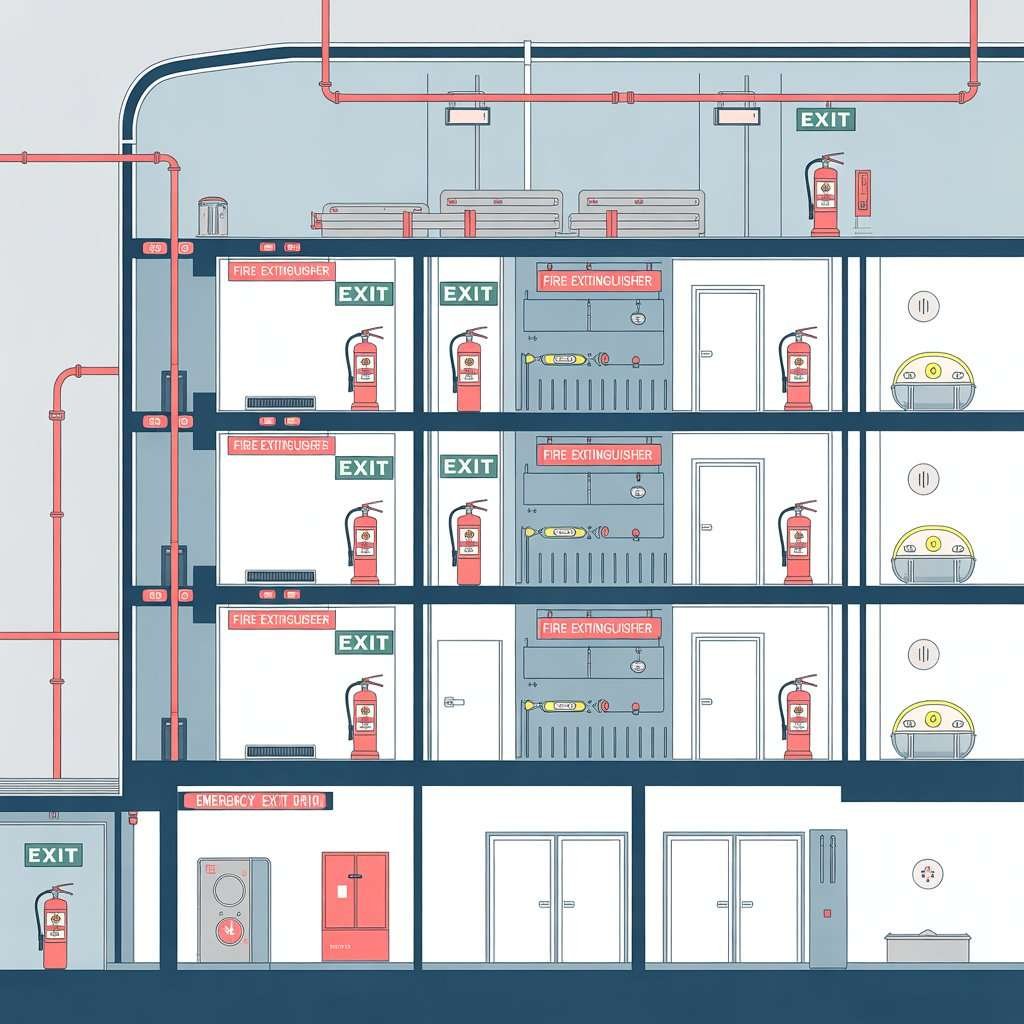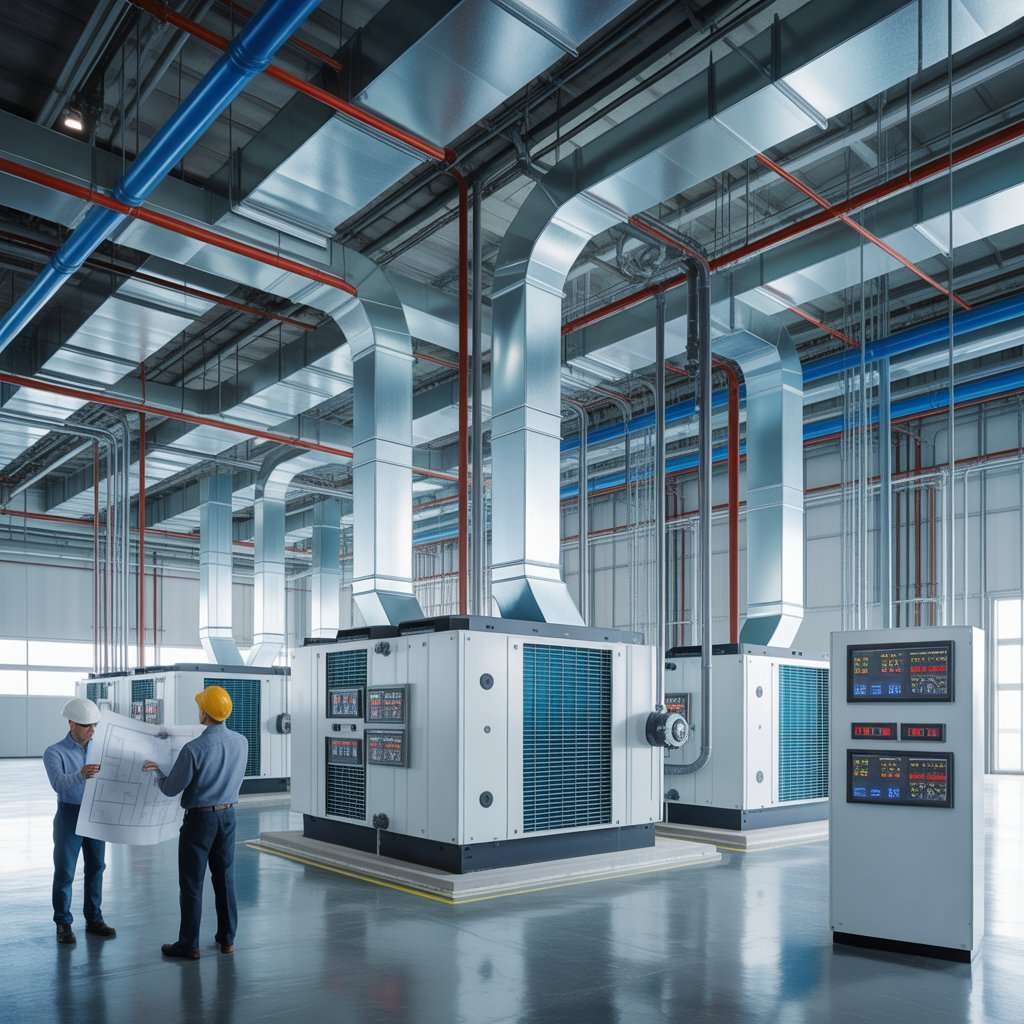Earthing and grounding are two of the most essential components of any electrical installation. Whether in homes, industries, commercial buildings, data centers, or communication systems, the importance of earthing cannot be overstated.
A reliable grounding system protects people from electric shocks, prevents electrical fires, stabilizes voltage, and improves the lifespan of electrical equipment.
In the field of industrial electrical engineering, grounding forms the backbone of electrical safety. Even in residential areas, an electrical maintenance engineer ensures that wiring is properly grounded to avoid dangerous voltage build-up. This blog explains the purpose, method, and benefits of earthing in a simple, clear, and practical way.
What Is Earthing and Grounding?
Earthing (or grounding) is the process of connecting electrical equipment and systems to the earth’s conductive surface.
The earth has the natural ability to absorb excess electrical energy.
When a fault occurs like a short circuit or insulation breakdown the electrical current finds a safe path to the ground instead of flowing through a person or appliance.
Where earthing is used:
- Homes and apartments
- Factories and industrial plants
- IT server rooms
- Communication towers
- Hospitals
- Schools and offices
- Commercial buildings
Even professionals in electronic communication engineering rely on grounding to protect sensitive data systems from electrical noise and instability.
Why Is Earthing Important? (Complete Breakdown for Maximum Clarity)
Earthing provides crucial protection against electrical dangers. Its importance includes the following benefits:
1. Prevents Electric Shock
When there is a fault, metal surfaces that should not carry current may suddenly become energized.
Earthing ensures the fault current flows directly into the ground, keeping the user safe.
2. Reduces Risk of Electrical Fires
Electrical fires happen when excessive current causes wires to overheat.
A proper grounding system allows unwanted energy to dissipate safely, reducing the risk of fire hazards.
3. Protects Equipment From Damage
Power surges caused by lightning, grid fluctuations, or short circuits can destroy electrical appliances.
With proper earthing, this excess electricity is redirected to the ground instead of damaging equipment.
4. Stabilizes Voltage Levels
Grounding keeps voltage at a safe and predictable level.
This is crucial in industrial electrical engineering, where machines like motors, PLCs, VFDs, sensors, and automation panels require stable voltage for safe operation.
5. Improves System Performance
Electrical noise and interference can affect computers, communication systems, and sensitive instruments.
Earthing minimizes this interference, ensuring smooth and reliable performance.
Role of an Electrical Maintenance Engineer in Earthing Systems
An experienced electrical maintenance engineer plays a vital role in maintaining earthing systems.
They ensure that grounding installations comply with electrical codes and function safely.
Their responsibilities include:
- Testing earth resistance
- Inspecting grounding connections
- Measuring load conditions
- Detecting voltage leakage
- Preventing equipment failures
- Maintaining industrial safety standards
Whether it’s a home or a factory, hiring an electrical engineer near me ensures your electrical system is safe and well-maintained.
Types of Earthing Systems and Their Uses
Different spaces require different grounding methods. Here are the most common ones:
1. Plate Earthing
Uses copper or GI plates buried in the ground.
Common in homes and small offices.
2. Pipe Earthing
The most widely used method.
Suitable for areas with normal soil conditions.
3. Rod Earthing
Ideal for rocky areas with high soil resistance.
4. Chemical Earthing
Includes special earth enhancement compounds.
Preferred in factories, data centers, and telecom sites.
5. Grid or Mesh Earthing
Used in large industrial complexes, power plants, and substations.
Professionals from electrical engineering companies near me can help you select the right system for your building.
Importance of Earthing in Industrial Electrical Engineering
In industries, power quality and safety are non-negotiable.
Factories use heavy machinery, automation systems, communication devices, and high-power equipment that depend on stable grounding.
Industrial advantages include:
- Reducing machine downtime
- Improving motor and transformer life
- Protecting advanced control systems
- Preventing data loss in communication networks
- Ensuring compliance with safety standards
- Minimizing electrical noise and interference
Many industrial accidents are caused by poor grounding.
This makes routine maintenance essential in all industrial electrical engineering setups.
Importance of Earthing in Electronic Communication Engineering
Grounding plays a huge role in communication quality.
Systems like antennas, towers, routers, servers, and broadcasting equipment are highly sensitive to electrical interference.
Proper grounding helps:
- Reduce electromagnetic interference
- Improve signal clarity
- Stabilize sensitive equipment
- Protect systems from lightning
- Enhance transmission quality
- Prevent data corruption
This is why engineers in electronic communication engineering prioritize earthing in data centers and telecom installations.
How Earthing Improves Safety and Performance in Homes
Earthing is equally important in residential electrical systems.
Benefits include:
- Protection from shocks
- Longer appliance life
- Reduced risk of fire
- Better voltage stability
- Safer environment for children and elderly
- Reduced chance of electrical burnouts
If you notice repeated electrical issues at home, it is advisable to search for an electrical engineer near me to perform an earthing inspection.
Signs Your Earthing System Needs Immediate Inspection
You should get a safety inspection if you notice any of the following:
Light flickering frequently
Burning smell from switches
Shock from appliances
Circuit breakers tripping often
Devices overheating
High electricity bills
Poor performance of electronics
These are clear signs that the grounding system may be damaged or outdated.
How Earthing Protects Against Lightning
Lightning carries millions of volts.
If it strikes a building without proper grounding, it can cause severe damage.
Grounding helps by:
- Redirecting lightning energy into the earth
- Preventing structural damage
- Protecting appliances
- Reducing fire hazards
- Safeguarding communication systems
Telecom towers, factories, and high-rise buildings must use specialized grounding systems for lightning protection.
Global Standards for Proper Earthing
Earthing installation must follow international safety standards. These include:
- IEEE Safety Standards
- National Electrical Code (NEC)
- International Electrotechnical Commission (IEC)
- OSHA Electrical Safety Regulations
These bodies set the rules that professionals must follow to ensure safety and compliance.
FAQs About Electrical Maintenance Engineer
1. What is the importance of earthing?
Earthing protects people and equipment by safely diverting excess electricity into the ground.
It prevents shocks, fires, voltage instability, and equipment damage.
2. What is earthing and grounding?
Earthing connects electrical systems to the earth.
Grounding provides a stable reference point for voltage.
Both work together to ensure electrical safety and efficiency.
3. What is the purpose of a grounding earthing system?
Its purpose is to:
- Prevent electric shock
- Improve safety
- Protect appliances
- Stabilize voltage
- Reduce fire hazards
Conclusion
Earthing and grounding are essential for protecting homes, industries, and communication systems.
A well-designed grounding system ensures electrical safety, prevents damage, and supports efficient performance.
Whether you live in a small house or manage a large industrial plant, proper earthing must never be ignored.






